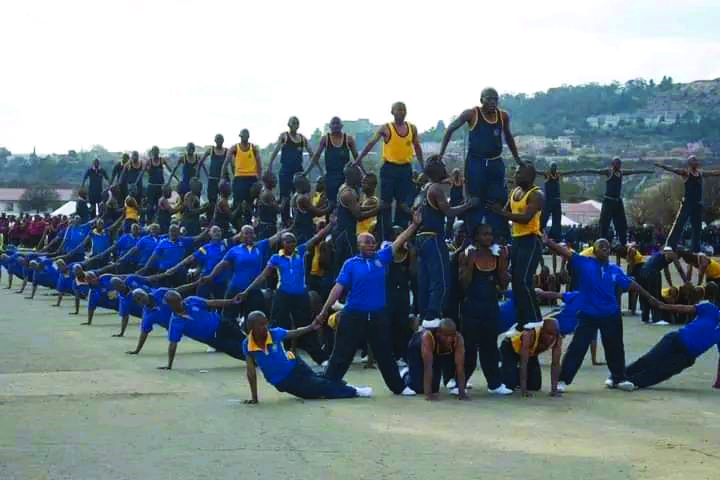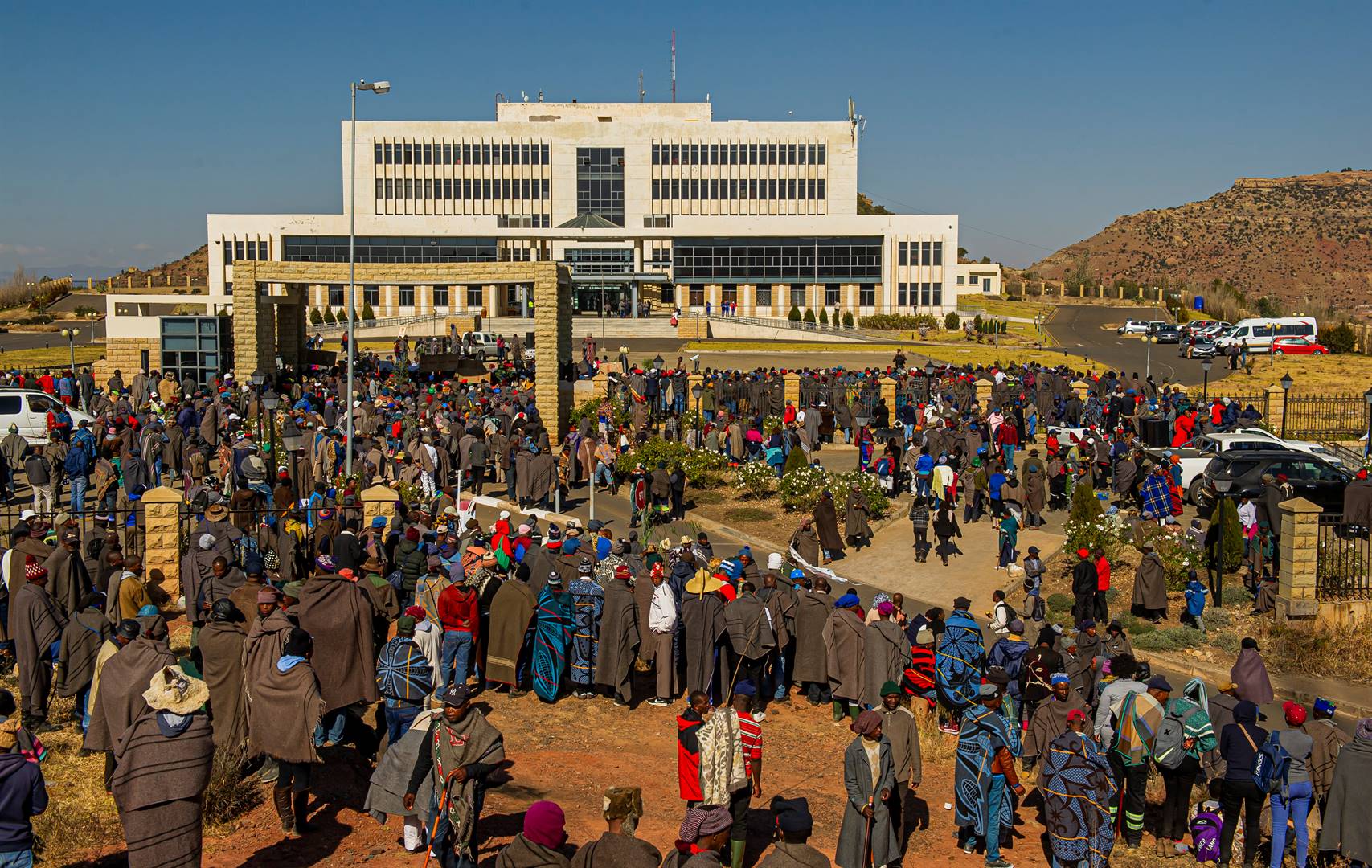Motsamai Mokotjo
The Lesotho Mounted Police Service (LMPS) recently held a graduation ceremony, an event typically associated with celebration and pride.
However, this occasion took place amidst a deeply troubling culture of brutality that persists unabated under the leadership of the current Commissioner, Holomo Molibeli.
One of the most alarming manifestations of this culture of brutality is the torture and killing of suspects while in police custody. These acts represent a flagrant violation of human rights and should be a cause for concern not only among human rights activists but also among all individuals who value and cherish the ideals of justice, fairness, and respect for human dignity.
When a suspect is apprehended and placed under police custody, they should be entitled to certain fundamental rights, including the right to a fair trial, protection from torture, and the right to life.
These rights are enshrined in numerous international human rights instruments, including Lesotho’s constitution, and reflect the core principles of justice and humanity.
However, the occurrence of torture and killings in police custody signifies a gross abuse of power and a complete disregard for these fundamental rights. It represents a betrayal of the trust that society places in law enforcement agencies to uphold the rule of law and protect the well-being of individuals.
The consequences of such actions extend beyond the immediate victims and their families. They erode public trust in the police force and undermine the foundations of a just and equitable society.
When the very institutions tasked with maintaining law and order become perpetrators of violence and cruelty, the social fabric starts to unravel, creating an atmosphere of fear, mistrust, and injustice.
The responsibility to address this issue lies not only with human rights activists but with society as a whole. Individuals and organizations committed to the promotion and protection of human rights must raise their voices and demand accountability for these grave violations.
They should advocate for robust mechanisms to ensure transparency, oversight, and accountability within law enforcement agencies.
Efforts should be made to enhance the training and education of police officers, emphasizing the importance of upholding human rights and adhering to professional standards of conduct.
The independence of the Police Complaints Authority (PCA) can also play a crucial role in monitoring police practices, investigating allegations of abuse, and ensuring appropriate consequences for those found responsible.
The occurrence of torture and killing of suspects in police custody within the LMPS is a distressing reflection of a culture of brutality that persists under the leadership of Commissioner Molibeli.
This issue should raise serious concerns among human rights activists and all individuals who believe in the sanctity of human rights. It highlights the urgent need for systemic change, accountability, and the restoration of trust in law enforcement to ensure a just and fair society for all.
This alarming issue should raise serious concerns among human rights activists and all individuals who firmly believe in the sanctity of human rights.
Torture and killing are clear violations of fundamental human rights, including the right to life, the right to be free from torture and cruel, inhuman, or degrading treatment or punishment, and the right to a fair trial. The LMPS’s role is to ensure public safety, protect citizens, and enforce the law, not to engage in or tolerate acts of brutality.
The existence of a culture of brutality within the LMPS reflects deep-rooted systemic issues that must be addressed urgently. It is not just a problem of individual officers or isolated incidents; it signifies a broader failure in the structures, policies, and oversight mechanisms that govern law enforcement in the country.
This demands a comprehensive and transformative approach to bring about systemic change.
Accountability is a vital component of this process. Those responsible for perpetrating acts of torture and killing must be held accountable for their actions, regardless of their rank or position.
Impunity only perpetuates a culture of violence and sends a dangerous message that such behavior is tolerated or even condoned within the police force. It is crucial to conduct thorough and impartial investigations into these incidents, prosecute those responsible, and ensure they face appropriate legal consequences.
However, achieving accountability alone is not sufficient. The urgent need for systemic change within the LMPS extends beyond punishing individual wrongdoers.
Efforts should focus on addressing the root causes that contribute to the culture of brutality, such as inadequate training, lack of oversight, corruption, and the absence of effective disciplinary mechanisms. Comprehensive reforms should be implemented to foster a culture of respect for human rights and promote professional conduct within the police force.
Besides, the restoration of trust in law enforcement is paramount. The occurrence of torture and killing erodes public confidence in the police and undermines the legitimacy of the entire justice system.
Rebuilding trust requires proactive measures, including transparent communication, community engagement, and the establishment of independent oversight mechanisms to ensure the LMPS’s actions are subject to scrutiny and accountability.
Collaboration with civil society organizations, human rights defenders, and local communities can contribute to rebuilding trust and forging a strong partnership between the police and the public they serve.
Ultimately, addressing the occurrence of torture and killing of suspects in police custody within the LMPS is not just a matter of ensuring justice for the victims; it is about creating a just and fair society for all. Human rights are universal, and their protection and promotion are essential for the well-being and dignity of every individual.
By confronting the issue head-on, implementing systemic changes, demanding accountability, and working towards the restoration of trust, it is possible to transform the LMPS into an institution that upholds the highest standards of human rights, protects the people it serves, and contributes to a safer and more just society in Lesotho.
Summary
- These acts represent a flagrant violation of human rights and should be a cause for concern not only among human rights activists but also among all individuals who value and cherish the ideals of justice, fairness, and respect for human dignity.
- The occurrence of torture and killing of suspects in police custody within the LMPS is a distressing reflection of a culture of brutality that persists under the leadership of Commissioner Molibeli.
- Torture and killing are clear violations of fundamental human rights, including the right to life, the right to be free from torture and cruel, inhuman, or degrading treatment or punishment, and the right to a fair trial.

Your Trusted Source for News and Insights in Lesotho!
At Newsday Media, we are passionate about delivering accurate, timely, and engaging news and multimedia content to our diverse audience. Founded with the vision of revolutionizing the media landscape in Lesotho, we have grown into a leading hybrid media company that blends traditional journalism with innovative digital platforms.







